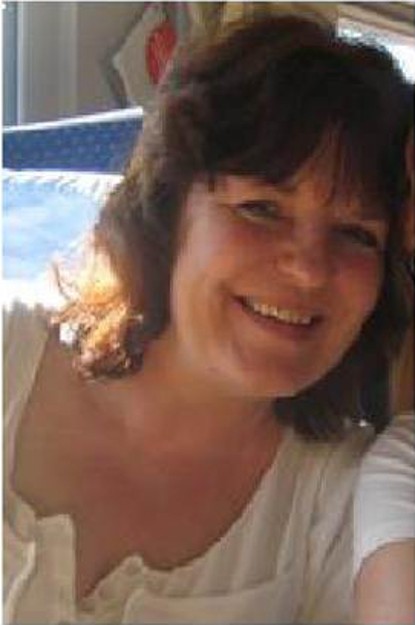Bachelor and Master theses
Master and Bachelor students are encouraged to contact us regarding research in the lab and possible thesis topics.
Possible topics from the 2023 thesis presentation (opens in new tab)
Of course, other topics (as well as your own ideas) are also possible. Please send informal inquiries to Constantin Rothkopf or the lab members about details.
Current Classes at TU Darmstadt
- Advanced Cognitive Science I: Perception and action
- Statistical modeling in cognitive science
- Statistical modeling in psychology
- Experimental psychology practice
- Cognitive science master project
Previous classes at TU Darmstadt
- General psychology I
- Statistics II
- Multivariate methods
- Cognitive Science III: actions
- Advanced Cognitive Science III: Applied cognitive science
- Introduction to latent variable models
- Computational foundations of cognitive science
- Cognitive modeling
- Applied cognitive modeling
- Specialization in cognitive psychology
- Application-oriented program design
- Theory and practice of scientific work in psychology
- Research and application areas of psychology in IT
- Computational cognitive science colloquium
- Bachelor-thesis Seminar
- Master-thesis colloquium
Completed Bachelor and Master theses at TU Darmstadt
2022
- Tobias Niehues, BSc thesis: Do humans adapt their planning horizon?
- Lukas Maninger, BSc thesis: Predicting human similarity judgments using normalizing flows.
- Myra Zmarsly, MSc thesis: Parameter-efficient language model tuning in the context of empathy and distress prediction.
- Sabine Dotterer, BSc thesis: Investigating the influence of different cost-profit ratios on human performance and strategies in optimization problems in an eye tracking experiment.
- Christian Bald, MSc thesis: A partially observable Markov decision process model of blinking.
- Lydia Ebbinghaus, BSc thesis: Spatial navigation in a virtual reality homing task.
- Thabo Matthies, BSc thesis: Learning generative models for font synthesis.
- Dinh Khanh Thi Vo, BSc thesis: Image captioning networks for saliency prediction.
- Anna-Maria Kugler, BSc thesis: An investigation of optimality in sensorimotor actions.
- Fabian Tatai, MSc thesis: Shooting pucks at targets for money: Economic and sensorimotor decision making during physical object interactions.
2021
- Marius Kleboth, MSc Thesis: Comparing humans and reinforcement learning agents in the computer game frogger.
- Tümer Tosik, MSc thesis: Interactive reinforcement learning using implicit facial expressions.
- Tobias Thomas, MSc thesis: The neuroeconomics of eye movements.
- Trung-Hoa Ha, BSc thesis: Comparing machine learning methods for font generation.
- Jule Brendgen, MSc thesis: The relation between social interaction and intrinsic motivation in reinforcement learning.
- Yannik Keller, BSc thesis: On solving the water pouring problem using simulation and reinforcement learning.
- Lisa Scherf, MSc thesis: Learning to segment human sequential behavior to detect the intention for interaction.
- Tabea Wilke, MSc thesis: Learning temporal planning of gaze sequences under uncertainty.
- Christopher Weiss, BSc thesis: Economic decision making and the common-ratio effect: human behavior in the Allais Paradox.
2020
- Wassim Ben Salem, BSc thesis: Fully Convolutional Network for Image Saliency, 2020
- Paul Schweiger, MSc thesis: Quantifying the UX: A study on the effects of data-driven feature development.
- Megane Shene, BSc thesis: Inferring people’s distance priors with human MCMC and the method of adjustments.
- Nico Andersen, MSc thesis: Using eye tracking to recognize human decisions during the reading of moral questions.
- Max Frommknecht, BSc thesis: Can humans learn non-linear power dynamics of springs?
- Fabian Kessler, MSc thesis: Comparing Models of Human Path Integration.
2019
- Felix Lupan, BSc thesis: Operator physical and mental state assessment.
- Dominik Straub, MSc thesis: Simulating the natural input to the visual system.
- Jan Wieland, MSc thesis: Bewertungsprozesse und emotionale Reaktivität bei der Verarbeitung von Filmausschnitten sozialer Zugehörigkeit und Zurückweisung bei Patienten mit Borderline- Persönlichkeitsstörung.
- Fabian Kessler, MSc thesis: Comparing models of human path integration.
- Lisa Zimmermann, MSc thesis: Real world application of state-of-the-art deep learning systems to count small objects in a low contrast scenario – An assembly line use case at BMW.
- Florian Kadner, MSc thesis: Humans integrate rates of sensory cues in a statistically optimal fashion.
- Paul Michael Aydinbas, MSc thesis: Realizing cognitive user models for adaptive serious games.
- Fabian Tatai, BSc thesis: Inference of object properties and their transfer to a control task are guided by internal physical models.
2018
- Susanne Trick, MSc thesis: Multimodal uncertainty reduction for intention recognition in a human-robot environment, 2018
- Felix Lupan, BSc thesis: Operator physical and mental state assessment, 2018
- Tümer Tosik, BSc thesis: Is orienting in space dependent on how we point?, 2018
- Patrick Halli, MSc thesis: Self-Efficacy in Real-time Functional Magnetic Resonance Imaging Neurofeedback as an Interventional Tool in Alcohol Use Disorder, 2018
- Frederik Loy, MSc thesis: Why Are Humans Getting Lost?, 2018
- Elisa Kircher, BSc thesis Konzeption, Implementierung und Validierung einer mobilen Softwareanwendung zur Selbsteinschätzung des emotionalen Zustands in Fahrstudien, 2018
2017
- Alexander Gehrke, BSc thesis: Facial emotion recognition using Support Vector Machines and eye movements, 2017
- Tabea Wilke, BSc thesis: Multimodal reward harvesting under temporal uncertainty, 2017
- Florian Kadner, BSc thesis: A computational study comparing visual saliency metrics, 2017
- Christian Bald, BSc thesis: How does manipulating intrinsic and extrinsic cost of visual information change a visuomotor strategy?, 2017
- Tobias Gronbach, BSc thesis: Rational models of multi-cue decision making: Taking steps towards algorithmic accounts, 2017
- Dominik Straub, BSc thesis: Can humans learn to deviate from the constant bearing angle strategy?, 2017
2016
- Patrick Halli, BSc thesis: Real-time Functional Magnetic Resonance Imaging Neurofeedback as an Interventional Tool in Alcohol Use Disorder, 2016
- Stefan Helfmann, BSc thesis: Learning when to blink. Environmental statistics guide blinking behavior, 2016
- Susanne Trick, BSc thesis: Visuomotorische Steuerung des Füllens eines Glases mit einer Flüssigkeit. Ein parametrisches Verhaltensexperiment unter Verwendung von Virtueller Realität, 2016
- Stefan Gutsch, BSc thesis: Visual orienting in a familiar environment: Is there evidence for a map in our head?, 2016
- Sascha David Stenger, BSc thesis: Free sorting objects from two distinct categories – A computational approach, 2016
2015
- Sophie Jentzsch, BSc thesis: The influence of states and traits on the beliefs in a decision-under-uncertainty task, 2015
- Hannah Syrek, BSc thesis: Transfer of a measure of risk-taking in real and virtual reality: the Balloon Analogue Risk Task, 2015
- Nicolina Wenzler, BSc thesis: Learning to learn: A Bayesian model of human structure learning in categorization tasks, 2015
- Frederik Loy, BSc thesis: Der Einfluss von Video-Action-Games auf die Leistungen in Aufgaben zur Ermittlung des Racial Bias, 2015


